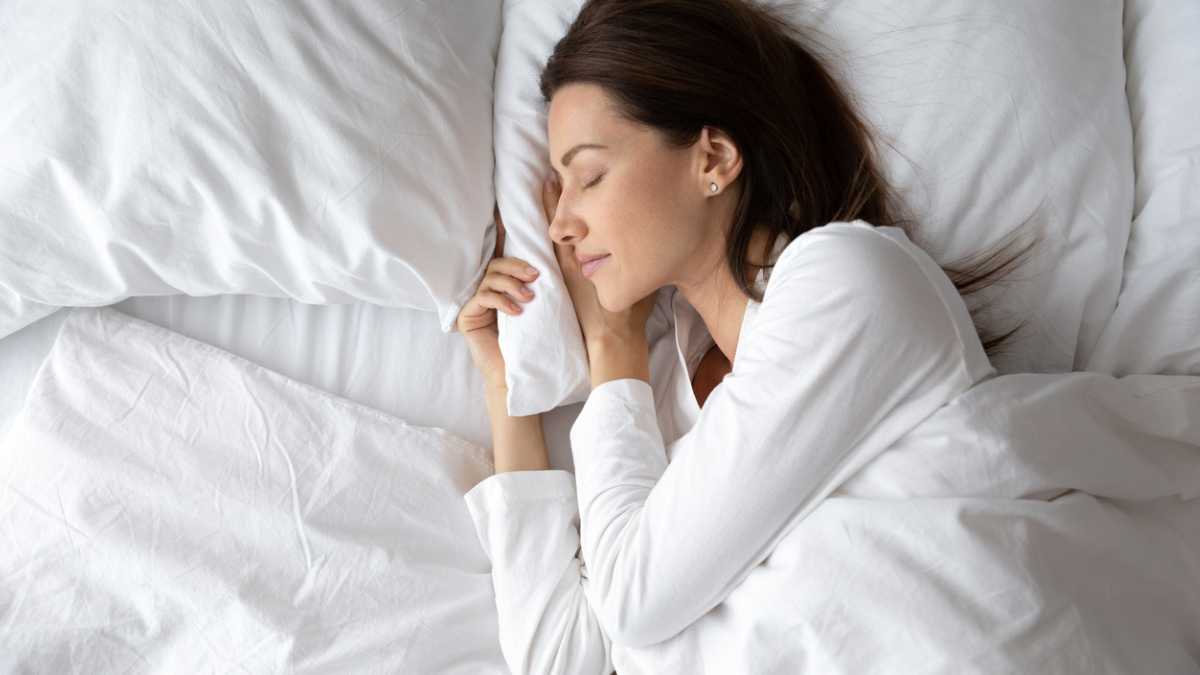In our hectic and fast-paced world, sleep is often neglected. There are often situations in everyday life in which we attach too little importance to it. Some people even tend to say that they can still get enough sleep when they are dead. But the importance of a sufficient and high-quality night’s rest should by no means be underestimated.
Good sleep hygiene plays a crucial role in our physical and mental performance as well as our emotional stability. In addition, repair processes take place during sleep and the subconscious can process impressions of the day. And isn’t it a good feeling to wake up refreshed after a nice dream and start the day fresh? Healthy sleep hygiene ensures that this feeling occurs regularly. In the following lines, we’ll tell you what tips and tricks you should consider.
-
Bedroom as a place of rest
For a restful sleep to succeed, the bedroom should actually be a place of rest, and not distract by things that actually do not belong there. Since working in a home office has become socially acceptable since the strict Corona rules, many people tend to take their laptop or work documents with them everywhere, especially if they want to have them quickly at hand at all times. However, these have as much of a place in the bedroom as shift schedules or work clothes. Instead, a bedroom should be a place of rest and relaxation where it is possible to completely switch off and let go. Houseplants and dimmed lighting can help make the bedroom a guarantor of healthy sleep.
-
Digital Detox in the evening
It is now known that the blue light from electronic devices is particularly harmful and causes poor sleep, as it suppresses the release of the sleep-promoting hormone melatonin. In addition, mental stimulation plays a role. For example, people who still consume content on their smartphones in the evening have a harder time getting their minds to rest. While we can hardly escape the effects of digital devices during the day, it’s important to put them away about an hour before bedtime and give your own body a chance to become sleepy naturally. Without screen consumption, you fall asleep much more relaxed and often through it. Instead of the blue light of electrical devices, candlelight and a good book just before bed can promote sleep hygiene.
-
Encourage sleep rituals
Do you have a bedtime ritual? Many people would answer this question in the negative or wonder about it, as they are not at all familiar with rituals of this kind. However, they are a great way to improve your sleep hygiene and bring about healthy sleep. If certain activities are regularly performed before going to bed each day, these activities develop into rituals that can have a beneficial effect on sleep. These can be, for example, taking a full bath, a footbath or enjoying a cup of tea, but also body care (e.g., applying body lotion) or reading a non-digital medium. Relaxing music or an audio book also count. There are many nice things that can become your own sleep ritual.
-
Fresh air for healthy sleep
What is good for our bodies during a walk in the woods is also welcome at night for healthy sleep: fresh air in the room! Make sure that there is enough fresh air in the bedroom. For this, it is enough to leave the window or balcony door open a crack. If the noise from outside disturbs you, you should air the room at least once before going to bed. Our cells need oxygen to “breathe” and carry out repair processes. The difference is quickly noticeable. If there is fresh air in the room at night, you don’t wake up in the morning in the typical CO2 cloud (perspiration, night sweats, etc.) and you are much more refreshed.
-
Sufficient exercise during the day
It is possible to do something for better sleep hygiene as soon as you get up. If you move a lot during the day and put sufficient strain on your body, you can look forward to a greater need for rest and sleep in the evening. By shortening the time, it takes to fall asleep, our bodies automatically get a better night’s sleep, which is then usually deeper and longer. In addition, sport and exercise help prevent unpleasant side effects such as snoring and sleep apnea.
-
Eat a healthy diet
Diet also plays a role with regard to healthy sleep. Alcoholic beverages and nicotine-containing substances should be avoided shortly before bedtime, as should fatty foods that are then heavy on the stomach. However, it is quite true that the stomach should be lightly filled to spend a pleasant night. Everyone will have gone to bed hungry, only to find that the longed-for sleep is fitful, and, in the worst case, you wake up in the middle of the night with a growling stomach. Interruptions in front of the fridge reduce our quality of sleep, which is why a healthy and filling dinner is a good measure for healthy sleep. Fish with rice and vegetables, baked potatoes, vegetarian dishes or a sandwich with fruit for dessert are a good idea and fill you up in a healthy way.
-
The right surface
Make sure you have chosen the right firmness level of mattress and that your pillow suits you. It’s not uncommon for the wrong base to be to blame for unhealthy sleep and tension caused by lying in the wrong position overnight. For example, if you are gaining weight due to a leg injury, you should check to see if your mattress still fits the change in support weight or if you need a new one. Blankets should also never be too heavy or too warm, as the skin needs to breathe at night and the body otherwise produces excessive sweat or suffers moisture loss.
Healthy sleep: a conclusion
With the above tips, it is easy to enjoy restful sleep both at home and on vacation, and to ensure better sleep hygiene. The beauty of it is: The positive effects set in relatively quickly and we can look forward to a higher physical and mental performance, which benefits us both in the private and professional sphere. Often it is enough to apply two or three of the tips mentioned to bring about healthy sleep and to enjoy it permanently. We wish you good luck and restful nights.



